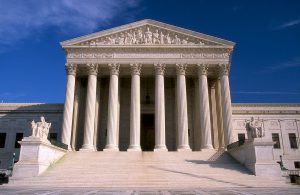There may come a time in many seniors’ lives when they require emergency hospitalization. The hospital provides the necessary treatment, then they might send the patient to a nursing care facility for further care. If you find yourself in this situation, you might think that Medicare will fully cover both your hospital stay and your aftercare. But this is not always the case. If the hospital changed the status of your stay from “inpatient” to “observation care,” you would end up with a big bill, and you would have no way to appeal the decision – until now. At the end of March, a federal judge ruled that beneficiaries who were charged for aftercare after having their status changed can challenge the bills they received.

How Observation Status Affects Billing
Medicare has very specific rules about covering care in a skilled nursing facility. In order for your stay to be covered, you need to have been hospitalized as an inpatient for 3 or more consecutive days before going to the facility. But, if you are classified as “under observation” during your stay in the hospital, then you would be considered an outpatient, rather than an inpatient. This means that if the hospital labels your stay as “observation care,” any care you receive at a nursing facility would not be covered by Medicare.
If your status is changed from “inpatient” to “under observation” during your hospital stay, your aftercare could end up costing you thousands of dollars out-of-pocket – or you could even be denied care.
The Lawsuit & Its Ruling
In 2011, seven Medicare beneficiaries filed a class action lawsuit against the Department of Health and Human Services (HHS). In Alexander v. Azar, these beneficiaries argued that their status had been switched from “inpatient” to “under observation,” and that they should be given the right to appeal this decision.
On Tuesday, March 24, District Judge Michael Shea ruled in favor of all beneficiaries who had their statuses changed and then received large bills for aftercare. According to his ruling, any patient since January 1, 2009 who had been admitted as an inpatient by their doctor but later had their statuses switched are entitled to appeal the denial of their claims. The new ruling only applies to beneficiaries who were admitted as inpatients and then later switched to outpatient status by the hospital. If the doctor admitted them as “under observation,” then they cannot appeal.
Judge Shea estimates that hundreds of thousands of beneficiaries will be able to appeal and get reimbursed.
It can be frustrating to know the rules of Medicare, but not have any control over following them. Hospitals decide how to classify patients, and their decision could cost you thousands of dollars. Luckily, thanks to Judge Shea, Medicare beneficiaries now have a way to appeal these decisions, and possibly get out of medical debt.

